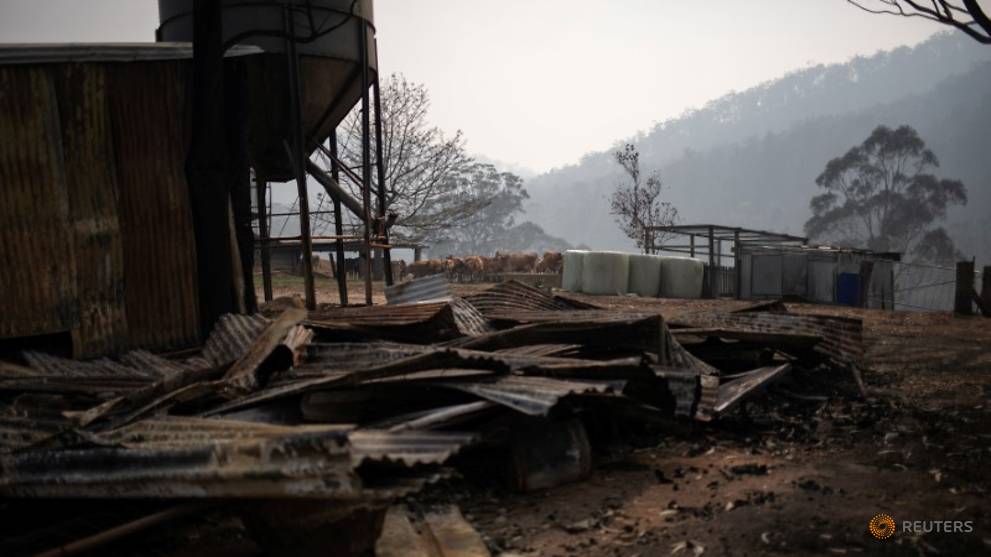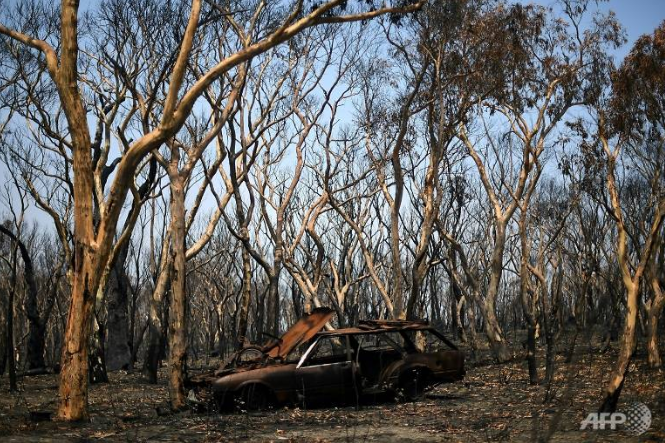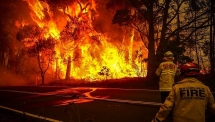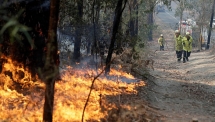Relief as rain falls over Australian bushfires
 |
| A destroyed storage facility is seen in front of the remaining calves of dairy farmer Tim Salway in his farm in Wandella, near the town of Cobargo, Australia January 13, 2020. REUTERS/Alkis Konstantinidis |
The fires, unprecedented for Australia in terms of duration and intensity, have claimed 28 lives and killed an estimated one billion animals.
Sustained hot weather and only very rare periods of light rain in the affected areas have deepened the crisis.
So authorities had been looking forward to this week's rain hoping it would help contain or even extinguish some fires.
In the state of New South Wales, where many of the worst fires have burnt, there were "good falls" on some blazes early Thursday, the local meteorology bureau reported.
In the southern city of Melbourne, thunderstorms late on Wednesday helped to clear bushfire smoke that had choked the city since the start of the week and disrupted the build-up to next week's Australian Open tennis tournament.
"Storms have improved air quality in most parts of the state," the Victorian Environment Protection Agency said.
 |
| Months of bushfires in Australia have claimed 28 lives and and killed an estimated billion animals AFP/SAEED KHAN |
More rain was forecast until the weekend which, if it does occur, would be the most sustained period of wet weather since the crisis began in September last year.
"This will be all of our Christmas, birthday, engagement, anniversary, wedding and graduation presents rolled into one. Fingers crossed," the New South Wales Rural Fire Service said early this week in reference to the forecast wet weather.
Officials warned, however, that short, intense thunderstorms could lead to flash flooding, while lightning brought the risk of new fires being ignited.
"We're expecting unsettled weather for the next four or five days or so at least," Jake Phillips, a senior meteorologist at the Bureau of Meteorology told ABC radio.
"The rainfall in some areas might be useful and in other spots it might only be a millimetre or two.
"There are risks associated with it, so it's not always necessarily a great thing, particularly if we get the rainfall really quickly. What we really need is soaking, steady rain."
The fires have destroyed more than 2,000 homes and burnt 10 million hectares of land - an area larger than South Korea or Portugal.
In New South Wales alone, 30 blazes were still burning out of control on Thursday, according to the state's rural fire service.
Australia endures bushfires every year but they started much earlier than normal last year and have lasted far longer.
Forests and farming land were already extremely dry due to a prolonged drought, providing the foundations for the fire crisis when extreme hot weather hit well before the southern summer.
Australia experienced its driest and hottest year on record in 2019, with its highest average maximum temperature of 41.9 degrees Celsius recorded in mid-December.
Scientists say the bushfires are the type of extreme disasters the world can expect more of as global warming intensifies.
The past decade was the hottest on record globally, the United Nations said on Wednesday.
"What's happening is persistent, not a fluke due to some weather phenomenon," said Gavin Schmidt, director of NASA's Goddard Institute for Space Studies, which provided one of the datasets for the UN report.
"We know that the long-term trends are being driven by the increasing levels of greenhouse gases in the atmosphere."
Recommended
 World
World
Trump’s Tariff Pause: A Strategic Move from “The Art of the Deal”?
 World
World
"Indian Navy's participation in AIKEYME exercise matter of great happiness": Admiral Dinesh Kumar Tripathi
 World
World
ASEAN and US Tariff Dilemma: Hybrid Approach to Global Trade Tensions
 World
World
Vietnam Affirms Its Active and Responsible Role at UNESCO
 World
World
US Imposes 125% Tariff on China, Pauses Tariffs for 90 Days on Over 75 Countries
 World
World
"Massive financial deficits with China, EU can only be cured with tariffs": Donald Trump
 World
World
Modi’s Sri Lanka Visit: A Diplomatic Triumph Amid Regional Tensions
 World
World



